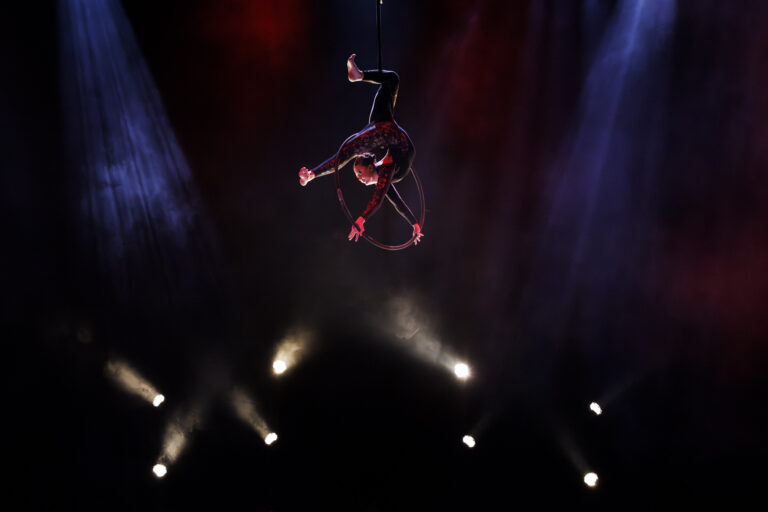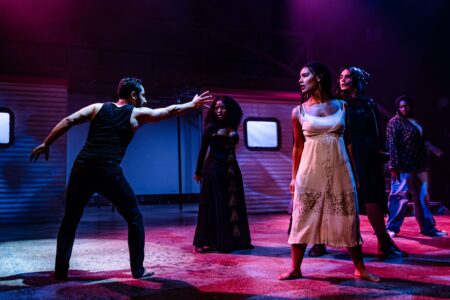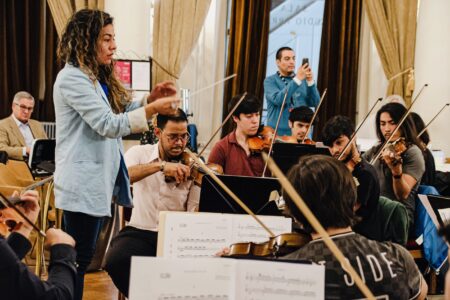
The performing transcends borders, sparks conversations and connects people in a way few other disciplines can. Beyond the stage and screen, skills honed by those who pursue this path are versatile and far-reaching. Think of the qualities every performer is taught to master — like creativity, collaboration and adaptability — these soft skills are just as essential in boardrooms and classrooms as they are under the spotlight.
It’s no wonder, then, that aspiring performers flock to the UK, which has long been a global stage for creative talent. It’s where the West End rivals Broadway, where the Royal Opera House and the National Theatre inspire awe, and where the modern-day trailblazers of music and drama continue to rewrite the rules of performance.
The country’s deep heritage makes its leading institutions magnets for creatives keen on finding inspiration and opportunity in the heart of the arts. Read on to discover the unique ways they offer exceptional training.

Each year, 30 new students are accepted into the three-year BA (Hons) in Circus Arts Degree. Source: National Centre for Circus Arts. Photo: Mark Morreau
National Centre for Circus Arts
Zoom into the heart of Shoreditch, London, and you’ll find a launchpad for the daring and the imaginative — it’s called the National Centre for Circus Arts. This Victorian power station-turned-circus hub has been electrifying the performing arts scene for over three decades, training circus artists who have gone on to captivate audiences across the UK and internationally. This unique, diverse art form and training facility feels right at home in a city that speaks 300 languages and celebrates 270 nationalities.
National Centre students are surrounded by London’s globally recognised cutting-edge arts scene — from the lively streets of Shoreditch and the many creative industries based there to theatres like Jacksons Lane, Roundhouse, Shoreditch Town Hall and the Southbank Centre. Onsite at the National Centre, they perfect their craft in state-of-the-art spaces and studios designed to accommodate the aerial and ground-based circus disciplines, learning from a range of professional circus artists who train, teach, and inspire students to develop their practice. Students also get to build relationships with over 400 professional circus artists who use the Centre’s facilities on a daily basis, readying them for life after graduation.
The BA (Hons) in Circus Arts unlocks direct access to the circus sector in the UK and this creative community. Validated by the University of Kent, the degree can teach you everything there is to know about the art of circus. Alongside specialised discipline training, you’ll study group acrobatics, theatre and movement classes, while delving into the theories of performance, anatomy and conditioning, and contemporary circus in the 21st century.
Ultimately, the Centre’s aim is to provide world-class training to help students hone their technical circus skills, cement their approach to experimentation and innovation and ultimately, allow them to decide what kind of circus artist they want to be.
The quality of the course is proven by the National Centre’s graduates, with many taking roles within renowned companies like Cirque du Soleil, Seven Fingers, and Circa. Some have even gone on to carve their own paths with new and innovative companies like Barely Methodical Troupe and Revel Pucks.
So, whatever training you may have undertaken before, the National Centre’s higher education programme will support you to develop and grow as an artist. Learn more about stepping onto the global circus stage.

By training under 1,000 students at a time, the Royal Welsh College of Music & Drama ensures each learner thrives in an inclusive, nurturing environment. Source: Royal Welsh College of Music & Drama
Royal Welsh College of Music & Drama
The Royal Welsh College of Music & Drama is a global magnet for creative talent, nurturing over 800 actors, musicians, designers, and arts managers from 40+ countries. Located in the city of Cardiff, its landmark building overlooks lush parkland yet is just a short stroll from the city centre, making it the best choice for artists in need of both inspiration and practicality.
The campus is filled with opportunities. In fact, it hosts more than 500 public performances a year. Stages are commonly graced by music students specialising in everything from the timeless elegance of historical performance to the cutting-edge possibilities of creative music technology. Other music programmes cover Brass, Guitar, Harp, Percussion, Strings, Piano, Jazz, Woodwind, Opera, Composing, and Vocal Studies.
If you’re more drawn to the world of theatre, the college’s drama offerings are equally dynamic. Acting students here immerse themselves in a range of styles and techniques, from classical plays to bold contemporary scripts. Those pursuing Musical Theatre refine their performance skills across singing, dancing, and acting, while students of Stage Management and Technical Theatre bring productions to life.
All three routes will let you take part in productions both at the College and in partnership with renowned organisations like the BBC, the Royal Shakespeare Company, and the National Theatre. And as part of the Richard Burton Company in your final year, you will join forces with professional directors to produce around 15 plays, ranging from timeless classics to cutting-edge new works.

RNCM ranked 5th for music in the 2024 QS University World Rankings. It was also rated Gold in all areas of the 2023 Teaching Excellence Framework. Source: Royal Northern College of Music
Royal Northern College of Music
Passion and conviction — these traits characterise students who attend the Royal Northern College of Music (RNCM). First established in 1973, the RNCM is a conservatory for exceptional music thinkers and performers eager to expand their art. It’s a space where music comes alive — inviting everyone, regardless of where they come from, to hone in on their talent and bask in the thrill of pursuing what they love.
Take the RNCM’s excellent Undergraduate School. Here, all forms of music are studied and celebrated, from classical forms to popular, current sounds. This includes an innovative Bachelor of Music with Honours in Popular Music, the UK’s first four-year degree of its kind. It’s a programme that continually reinvents itself, preparing its students to respond to the changes of a fast-paced music industry.
The RNCM Graduate School is just as impactful. Choose from conducting, performance, composition, music education and more — each programme is designed to be highly flexible and ripe with the real-world experience to set forth into the music industry. The Master of Performance, for example, provides various solo and ensemble performance opportunities and opportunities for industry placements.
Students learn and perform in a thriving UK live music hub, complete with a fully-equipped concert hall and theatre. They collaborate with orchestras and ensembles worldwide that have established longstanding partnerships with the RNCM. It’s a perfect starting point for musicians aiming to make their mark on the wider world.
*Some of the institutions featured on this article are commercial partners of Study International.










